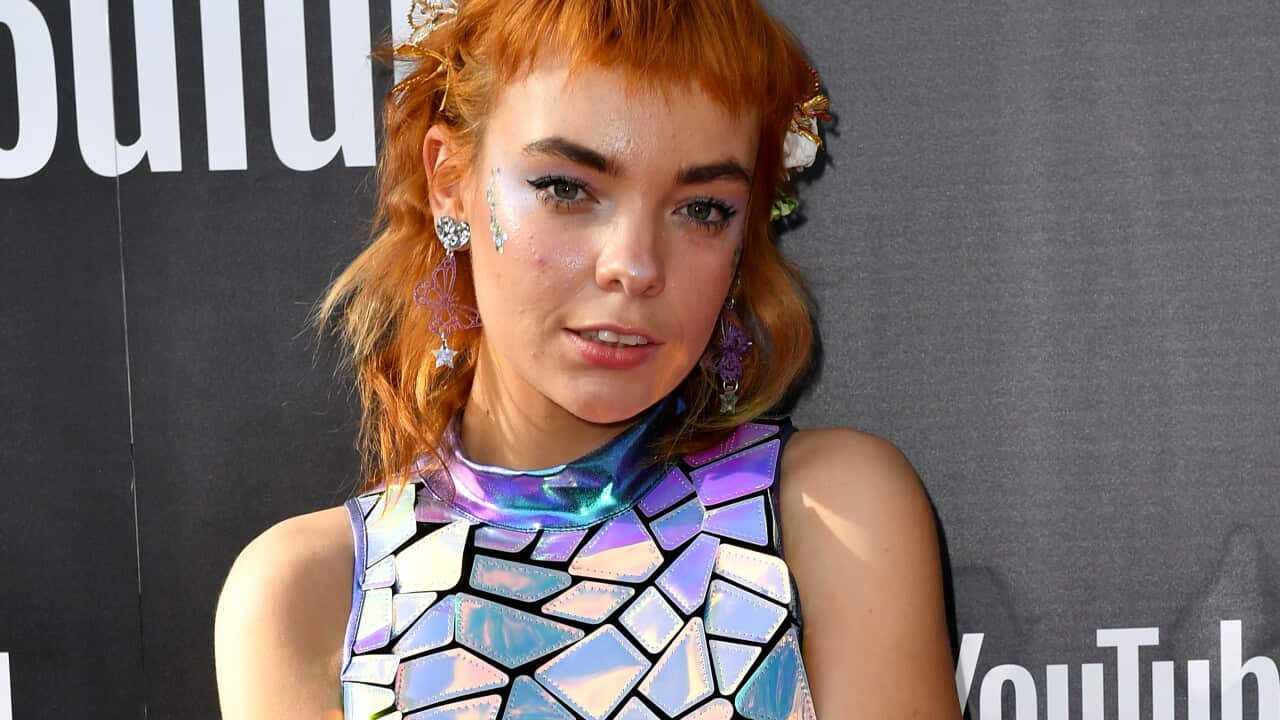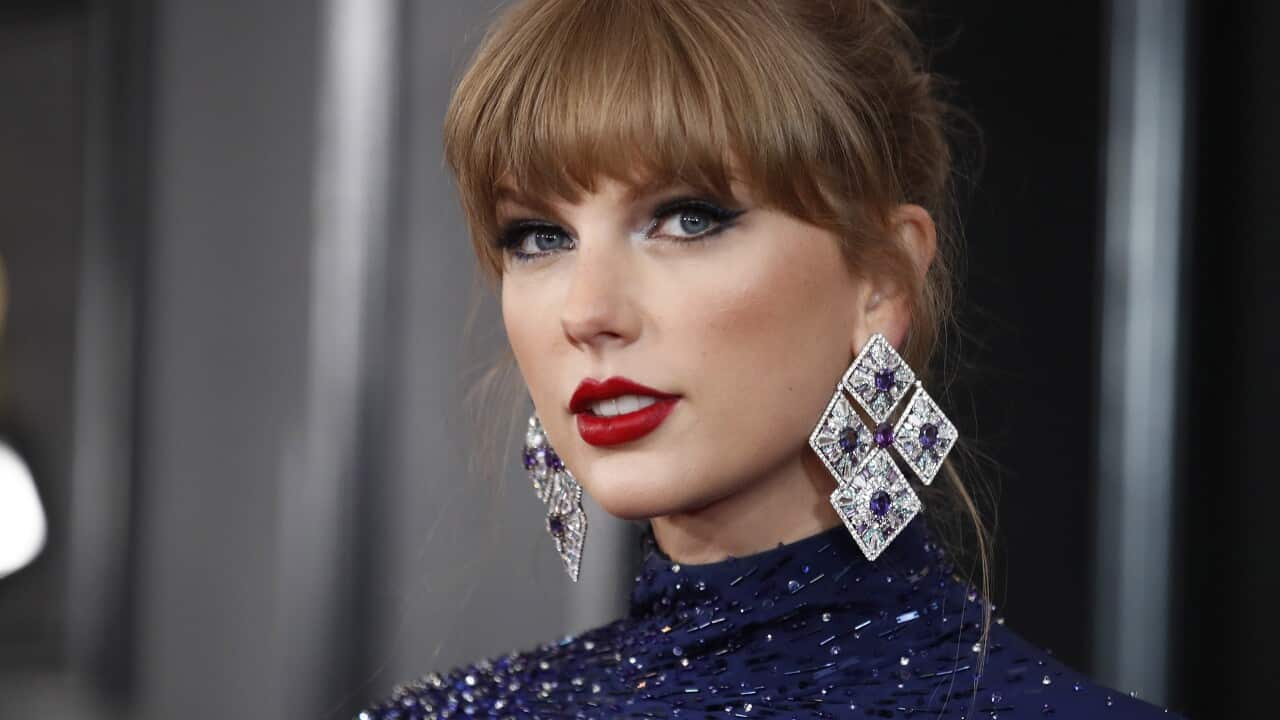Whenever Isabella Fantasia leaves her house, she takes her "autism survival kit" with her.
"Entering the outside world is very overwhelming and can be quite stressful because I have to take into consideration sensory components like noise, smells, fabrics, anything I touch, things being too bright," the Melbourne-based disability and youth advocate says.
Without it, Isabella, who is neurodivergent and has learning and psychosocial disabilities, feels "very stressed" and underprepared for what the day might throw at her.
"I've got everything from noise-cancelling headphones, a battery pack in case my phone dies, I've got my medication with me in case I forgot to take my meds, or if I need Nurofen, that's with me, then I've got sunglasses, I've got tissues, other bits and pieces, fidget toys," she says.
"That helps me to function in the world, and in everyday life."

Isabella Fantasia has multiple hidden disabilities. Source: Instagram / Isabella Fantasia
"I have a really positive experience wearing it," she says.
"I've kind of grown up very much in this heavy culture of misunderstanding or being ashamed of being disabled … so for me the Sunflower meant that I could identify as that, but not have to necessarily always tell people," she says.
Attached to Isabella's lanyard, which she's decorated with pronoun and queer pride badges, are two cards., while the other lists her name, phone number and emergency contacts.
"In case I do have a meltdown or I do become non-verbal, I can just point to my lanyard, pull the card out, and give it to someone if they're unsure of what's going on with me," she says.
What is the Hidden Disabilities Sunflower?
The Hidden Disabilities Sunflower program originated in 2016 at London's Gatwick Airport as a way to better identify, support, and provide assistance to people with non-visible disabilities.
"They came up with the Sunflower concept as a way of utilising an icon that was bright, happy, positive, colourful, easily visible, and supported the idea of positive community support," Justin Bruce, general manager of Hidden Disabilities Sunflower Australia and New Zealand, says.
After being successfully tested throughout Gatwick, the program was rolled out across other airports, transport networks, shopping centres, and entertainment, cultural, and sporting venues all over the United Kingdom.
Three years ago, it launched in Australia and New Zealand, in partnership with Melbourne disability support provider Bayley House.
"The clients at Bayley House, who are adults with intellectual disabilities, as part of their skill development and sometimes vocational development programs, are learning how to pack and fulfill the orders and are heavily involved in it and love the work that they're doing," he says.

Justin Bruce is the general manager of the Hidden Disabilities Sunflower program for Australia and New Zealand. Source: Supplied
"We're talking about 17 per cent of the population," he says.
"I think that means that everybody's connected to somebody with a non-visible disability, and all of us, because it's an ageing population, will have some requirements at some stage."
Given there are that can impact people's day-to-day activities, the type of support Sunflower-wearers receive will be dependent on their individual needs, Bruce says.
"We try our best with our training to empower and enable those staff to approach someone wearing it to say, 'How can I help you?'," he says.
For someone who struggles to stand for long periods of time, they might be provided with a seat or fast-tracked through a queue, Bruce says.
"I think, also, sometimes just to be acknowledged, just to have the confidence to know that they can pass through a venue or facility or service and have the support if they need it, is sufficient," he says.
"We hear stories of people who previously wouldn't go to an event or a venue or even go to a shop because they were overwhelmed by the environment, but now they feel more confident because they know it's Sunflower-friendly."
What places in Australia are Sunflower-friendly?
Support for the Sunflower has been "spreading rapidly", with , Bruce says.
This years , which is currently being held in Australia and New Zealand, is even a Sunflower-friendly event.
"Their legacy will be to leave our products and initiative behind at all those stadiums," he says.
Scentre Group, the company that operates Westfield shopping centres Australia and New Zealand, joined the Sunflower network last December.
Since then, all Westfield concierge staff, as well as many members of centre management and those who work in the support office, have been trained to assist Sunflower-wearers. To make them more easily identifiable to those who need support, they wear white Sunflower "supporter" pins.
There's an aspiration that all Westfield staff will eventually receive Sunflower training, Pam Wilson, Scentre Group's national community experience manager, says.
"We take our responsibility as a community hub very seriously," she says.
"We want, obviously, all of our customers to feel safe and supported when they visit us."
They're also encouraging Westfield retailers to adopt the initiative, so customers can get support no matter where they are in the shopping centre, Wilson says.
"I think when a brand as big as ours - and other brands that are equally big - support initiatives such as these, it really helps to contribute to raising awareness within the local community, and even wider," she says.

Pam Wilson is Scentre Group's national community manager. Source: Supplied
Hopes for a more inclusive future
While the number of Sunflower-friendly businesses and organisations in Australia is increasing, Isabella says more work is needed to ensure recognition of the symbol is widespread.
"I've found that mostly people with a disability recognise it; all the people that have, kind of, this strong connection or lived experience of disability," she says.
With advocacy being her "autism special interest", though, Isabella says getting to educate other people about the Sunflower makes her "really happy".
"If someone says, 'That's a really pretty lanyard', I love getting to blow their mind and being like, 'Oh, this is actually meant to be representative of hidden disabilities'," she says.
It also gives her the opportunity to challenge any misconceptions about what people with disability are like.
"To be an ally really means just listening to our voices and making the changes that we need for the world to be more accessible for us," she says.
Bruce is hopeful it won't be long until the Sunflower is a globally-recognised symbol for non-visible disabilities "much like the wheelchair icon is for accessibility".
"As we build brand awareness for this initiative, there's peer-to-peer support, so we're not so reliant on companies and organisations subscribing and training their staff — the general public are helping other people when they identify the Sunflower," he says.
"Together, we can all make sure that people are more included in society, wherever they go."
July is Disability Pride Month












